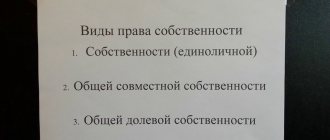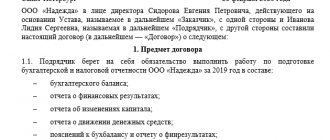The terms of power of attorney transactions are often tempting. To compensate for the inconvenience of the buyer from a non-standard sale, sellers reduce the price by 25–40%. Residents of other cities and countries offer good renovation options. They cannot come to the transaction and write out a power of attorney to relatives or realtors.
We had no intention of purchasing real estate, but one day my husband’s aunt offered to buy her apartment. Since the housing is legally clear, we did not refuse. They started to fill out the documents, but the aunt was injured. She left for treatment and, in order not to delay the deal, wrote out a general power of attorney for my mother-in-law.
The apartment is legally and practically clean - 100 sq. m. m of concrete.
We turned to realtors, but they did not want to take responsibility for checking the documents. I had to study the possible outcomes on my own: I went to lawyers, talked to a notary and state registrars. Based on the information received, I will tell you how not to be left without a home when purchasing it from the seller’s representative.
What is a general power of attorney?
A general power of attorney is a document under which the authorized person has a number of powers.
According to Art. 185.1 of the Civil Code of the Russian Federation, this type of documentation is subject to mandatory notarization. Actions under a general power of attorney always entail changes to state registers. For example, if a trustee is authorized to conclude a purchase and sale transaction, in the future it will be necessary to make adjustments to the Unified Register of Rights to Real Estate.
In essence, by issuing a general power of attorney for property, the owner transfers the right to dispose of it to a third party. It can act within the text of the paper at its discretion.
The only thing that remains inaccessible to the trustee is the execution of a deed of gift or will. It is possible to donate property using this document only if the text of the document directly states not only the right to perform this legal action, but also the data of the donee. In the case of a will, there are no exceptions - only the owner can write it.
Design rules
You can draw up a document in several ways , depending on the preferences and capabilities of the principal. For example:
- at a notary's office;
- at home or in the office by inviting a notary;
- draw up the document with a lawyer or yourself, then notarize it.
Preferably, the procedure is carried out in a notary’s office, where the principal and attorney come with their passports . The notary checks the identity of the arrivals and gives them an application form, which they fill out. After filling out the form, the notary draws up a power of attorney based on the information included in the application.
The same happens if a notary is invited to your home. Only in this case will the procedure be delayed while the document is being prepared, which the authorized person can pick up at the office on their own upon presentation of their passport.
When the text of the document was drawn up in a law office and printed, it can only be certified. But it will not be executed on a form with a protective coating, but on a regular A-4 sheet.
If the document was not drawn up in the presence of a notary, then it cannot be presented in signed form - signatures can only be placed in the presence of a notary, of which he makes a certification note.
We invite you to watch a video about issuing a power of attorney for the sale of an apartment:
What documents are needed?
The notary coordinates all his actions with the law and certifies the fact of a particular event only on the basis of the documentation presented to him. Therefore, the parties to the transaction submit certain documents. General requirements apply to identity documents.
Additionally, if relatives contact the notary, you must present documents confirming the relationship between them. In this case, depending on the current procedure, the notary may reduce the fee for services.
From the buyer
The buyer, if he is an adult and the apartment is registered in his name, only needs to present:
- your passport;
- attorney's passport.
If housing is registered in the name of a minor, then a power of attorney is drawn up by one of the parents upon presentation of a passport (after 14 years) and the child’s birth certificate.
From the seller
The documentation package from the seller is more voluminous . It includes the following papers:
- passports of the principal and attorney;
- title and title document for the apartment;
- Spousal permission to sell (for joint property).
If the spouse’s permission has not been issued, it can be issued simultaneously with the power of attorney. To do this, the spouse must approach the notary with his passport and marriage certificate.
How much does it cost to register with a notary and what is the validity period of the paper?
The validity period must be set at the discretion of the parties and included in the final part. An exception is cases of execution of a one-time power of attorney, which is event-oriented and loses force after it takes place.
If the period is not specified in it, then it will be valid for one year. To determine the validity period, a date must be entered.
The cost of registration consists of two indicators:
- technical services – if the notary himself prepares the document;
- notary fee – for certification.
Technical services depend on the prices accepted in a particular locality. They approximately correspond to the cost of similar services in law firms. In most regions of Russia they charge from 1000 rubles.
The duty is a fixed rate. It is 100 rubles for persons who are closely related and 500 rubles for others. Obtaining a power of attorney is paid by the principal .
What functions does a trustee perform?
Let's start with who can be a confidant. These functions can be performed by any person, a neighbor or someone unfamiliar. But the most reliable option is a close relative who also has experience in this matter. But only a few can boast of such acquaintances, so you have to look for an alternative.
Also, a power of attorney is often issued in the name of the realtor supervising the transaction. But just be especially careful not to fall in with a person who is involved in dubious matters. It is better not to trust such a person with your property, even if the cost of his services is significantly lower than that of competitors. The reduced price looks suspicious, especially considering that the work is really not an easy one, especially if we consider concluding a transaction under a general power of attorney, which shifts almost all responsibilities onto the shoulders of the realtor.
In addition, it must be taken into account that depending on the type of document, the number of functions of the trustee changes. Eg:
1. General power of attorney.
This is what is most often concluded when the sale of property is implied. This document gives the trustee almost complete freedom in terms of finding a buyer, preparing documents, and going to special authorities for various certificates.
The buyer even transfers the money to the authorized person, who, in turn, must send it to the principal. But the trustee has many restrictions, for example, he cannot independently set the value of the property, but only build on the framework that the owner has set for him. The text describes the obligations of the parties in as much detail as possible. After this, the document is certified by a notary to obtain legal force.
As you probably understood, this particular power of attorney is the most expensive in terms of payment for the services of a realtor, since practically nothing is required from the principal, not even personal presence. But it should be clarified that such a document is valid for 3 years, unless otherwise indicated in the text. In addition, the power of attorney can be revoked at any time.
2. One-time power of attorney.
This power of attorney is issued, for example, when the parties to a transaction do not have time to collect documents, and they want to transfer this work to an authorized person, naturally for a certain fee. The document is valid only once, until the work for which it was issued is completed. This is one of the most affordable types of proxy services.
3. Special power of attorney.
This type of document is also often used specifically for the sale of real estate. It is issued in order to sell one object, for example an apartment or a house. And as soon as the sale transaction is successfully completed, the document is canceled. But the peculiarity of this agreement is that the powers of the trustee here, compared to a general power of attorney, are greatly reduced and the trustee must consult on almost every issue with the owner, who is not involved in signing the purchase/sale agreement.
What risks does a general power of attorney pose for the parties?
A general or general power of attorney for real estate assigns to the trustee the maximum number of rights, in particular the right to dispose of real estate belonging to the principal.
In practice, this means that the representative at any time (during the period of validity of the power of attorney) can make almost any transaction on behalf of the owner. Concluding transactions under a general power of attorney carries certain risks both for the owner of the property and for the other party:
- The representative may perform actions with the real estate of the represented person, which the latter may not know about and may not even imagine the possibility of their commission. The transactions concluded by the representative will have to be contested, and this leads to problems both for the person who issued the power of attorney and for the new owner of the property. Therefore, you should not issue general powers of attorney to unfamiliar or untrustworthy people.
- If the power of attorney is revoked, the representative does not have the right to enter into transactions with the property of the former represented person. However, there are situations when the bona fide party to the transaction does not know that the power of attorney has expired. If such a transaction is completed, it may be declared invalid. Therefore, if the seller’s representative acts on the basis of a general power of attorney when concluding a transaction, it is better for the buyer to verify with any notary that the document has not been revoked. Recognizing the transaction as invalid entails the return of the parties to the original position - the seller must return the money, and the buyer is deprived of his rights to the property. However, if the seller refuses to return the money, then collecting it from him will be problematic.
- A representative may make a transaction on terms that are not favorable to the represented person. A general power of attorney, as a rule, does not indicate specific conditions for the disposal of real estate, which may contribute to this. For example, a representative sells an object for less than the owner wanted when drawing up a power of attorney. The trustee’s fulfillment of other verbally agreed (or not agreed upon at all) conditions is not guaranteed. In order to avoid such problems, it is preferable to indicate in the document a list of specific actions that the representative has the right to perform on behalf of the principal.
***
Thus, a general power of attorney can be issued only when the owner of the property knows the representative well and trusts him. Otherwise, it is better to issue a power of attorney only to perform specific actions, for example, to sell a certain apartment for a pre-agreed price.
Unlock access to the private part of Clerk with a Premium subscription. Get hundreds of webinars and online courses, unlimited consultations and other proprietary content for accountants.
Hurry up to subscribe with a 20% discount until October 15, 2021. Read more about “Premium” here.
What does a general power of attorney give for an apartment, house or land?
A general power of attorney provides the owner’s representative with very extensive powers:
- carry out actions to prepare all necessary documents relating to the property;
- participate in organizing transactions;
- sign documentation on behalf of the owner;
- participate in financial transactions;
- manage the legal fate of the entrusted property;
- other powers provided for in the documentation.
The authorized person has the right to sell the entrusted property, lease, exchange, pledge and perform other actions if they are provided for within the document.
In addition to general powers of attorney, there are two more types of powers of attorney:
- one-time – intended to perform a specific action once;
- special – issued for a specific period for specific actions.
As a rule, both types of documents are used to prepare papers for transactions. For example, the owner can entrust this action to a realtor or a lawyer hired for these purposes.
It is impossible to conduct a transaction and transfer property rights to another person using a one-time or special power of attorney. This can only be done with a general document certified by a notary. Moreover, the text of the document must specify the specific property and the type of the planned transaction.
Sale of real estate by general power of attorney: pros and cons
In order to understand whether it is necessary and whether it is possible to sell real estate by proxy, it is worthwhile to analyze the pros and cons of this procedure.
The disadvantages include:
- the owner risks being deceived by the person for whom the power of attorney was issued;
- any transaction that will be carried out by a trusted person may be declared invalid.
The main advantages of this document include:
- the owner can sell the property remotely;
- the owner will save time and effort on the process of selling an apartment.
Rights and opportunities
After a document has been drawn up, which is often also called a general power of attorney, the person acting on its basis receives the right to carry out quite a lot of operations related to living space:
- collection of documentation on behalf of the owner;
- alienation of real estate;
- rental of housing;
- resolving issues in government and other authorities;
- full participation in transactions with the apartment;
A general power of attorney is not the only possibility for transferring powers to manage real estate. Instead, you can draw up other trust documents, for example:
- a one-time trust document providing the opportunity to carry out a specific operation;
- a special power of attorney, which is drawn up for a number of specific actions for a strictly defined period.
These powers of attorney are most often granted when it is necessary to collect and prepare documents necessary for the sale; often a lawyer or realtor is chosen as the attorney in such cases. But it is possible to conclude a transaction related to the alienation of an apartment without the presence of the owner only if there is a notarized “general’s document”.
Types of power of attorney for an apartment
Can be classified depending on what range of powers is transferred to the trustee. Highlight:
- general power of attorney. All powers are transferred during its validity period;
- one-time – only for the sale of a specific apartment;
- special - only part of the powers is transferred. For example, the owner of an apartment trusts only the collection of documents, because at that time he is on a business trip. He will be able to be present at the signing of the contract and submission of documents for registration.
Note! Any power of attorney must be executed by a notary. The service is paid. Both parties must be present.
Drawing up a contract and paying for an apartment
Transaction form
A power of attorney is not an obstacle to executing a transaction in simple written form. The representative and the buyer can print out the purchase and sale agreement from the Rosreestr website, sign it, and then register ownership.
If you want everything to be official, enter into an agreement through a notary. This does not eliminate risks, but if the deal fails, the notary will act as a witness in court. He will confirm that he has established the identities of the representative and the principal, and read out the rights and obligations of the parties.
To certify the purchase and sale agreement with a notary, you will have to pay from 7,000 to 15,000 rubles (depending on the region) plus 0.2% of the transaction amount exceeding 1,000,000 rubles. There is another expense item - obtaining the consent of the buyer’s spouse to make a purchase. The issue price is up to 2000 ₽. In simple written form, consent is not required.
In Volgograd, the starting rate for a certificate is 10,000 ₽. With a percentage of the transaction amount and registration of my consent, the figure turned out to be large: the notary advised us to draw up the agreement in simple written form, which we did.
Rosreestr’s response to my request (including) about the need for notarized confirmation of a transaction made in simple written form.
Calculations
It is better to transfer money for the apartment to the owner. If not possible, pay the representative. But before you transfer money, check his right to make mutual payments - this is stated in the section of powers of the power of attorney.
Secure the fact of transfer of funds with a receipt: handwritten or certified by a notary. Here it would be more accurate to say that the notary itself is unlikely to be certified by a notary, but the signatures of the parties are ok. The cost of the service varies in regions, on average - 600 ₽. Lawyers believe that the option with a notary is safer than a simple receipt: the buyer acquires an independent witness who confirms that he paid money for the apartment.
An even better insurance option is a notarized receipt and a statement from the owner that he received the money from the representative and has no claims against the buyer. This way the seller acknowledges that all obligations have been fulfilled and he understands the irreversibility of the transaction. To ensure that the representative accurately delivers the documents, include a corresponding clause with a time limit in the contract.
Tax deduction
The buyer has the right to receive a tax deduction from the purchase of real estate in the amount of 13% of its value, but not more than 260 thousand rubles. The taxpayer's right to a tax deduction is confirmed, among other things, by payment documents. For cash payments - a receipt for the transfer of money. If you gave money to a representative, a power of attorney in his name will confirm the legality of the payment. The tax office explained that you need to provide the original. But when submitting documents for registration of rights to the MFC or Rosreestr, it is not necessary and even undesirable to give the original. So our power of attorney was lost, which is why the process of completing the transaction lasted almost two months.
Approximate contents of a power of attorney for the sale, rental and other actions with the apartment
Now let's look at the approximate structure of a notarized power of attorney and its content.
- At the very top, the name of the document (“Power of Attorney”), the place of its issue and the date are indicated. By the way, the date of issue of the power of attorney is a prerequisite for its validity.
- This is followed by the surname, name and patronymic of the principal, indication of citizenship, date and place of birth, his full passport data, information about the authority that issued the document, and address of residence. This is followed by information about your real estate. For example, the address of the location of the apartment, its area, number and date of issue of the certificate of ownership, the basis for acquiring the right.
- Similar information about the trustee is provided below. It is important to say that one power of attorney may indicate several representatives. In this case, everyone can be granted both an individual scope of rights and all the rights specified in the power of attorney.
- The following is information about the order that you trust to be carried out on your behalf. In our case, this means carrying out any transactions with the specified real estate, including alienation by any method not prohibited by law and rental. To do this, the representative is delegated the authority to submit and receive any documents, including certificates, extracts, statements, explanations, and sign all documents necessary for the proper execution of the specified order. As well as representing your interests in all state and non-state bodies or before individuals on issues related to the assignment.
- The following are indicated: the validity period of the power of attorney, an indication of the possibility of reassignment (or the lack of such a possibility), and you confirm that the consequences of issuing the power of attorney and the provisions of the law on powers of attorney have been explained to you. Then the personal signature of the person who issued the power of attorney is affixed.
- After all of the above, the notary’s details are indicated and his personal signature is affixed. With his signature, the notary confirms that the power of attorney was made in his presence, he verified your identity and legal capacity. The number of the power of attorney in the register and information about the amount collected for services are also indicated.
What does the document indicate?
The document must indicate the place where it was issued, the date, and must also include a notary’s signature and seal. Its presence serves as one of the main confirmations that the paper is legal and valid. All information about the principal and representative must be as complete as possible. Moreover, one power of attorney can be drawn up for several official representatives. At the same time, they can be given either equal rights or a clear set of them - for each trustee, all this is indicated in the document in great detail.
The main content of the power of attorney is information about all instructions and delegated powers that the authorized person can perform.
Most often we are talking about the alienation of a property in any way that is not prohibited by current legislation. This requires authority to file any documents required to carry out the assignment in the proper manner. In addition, as a rule, trustees are entrusted with representing the interests of principals in government agencies and non-state structures, as well as before individuals.
If the title documentation contains information about several owners of an apartment, this information must be indicated in the document. Moreover, the notary can request permission from each of them to draw up a document, which, in fact, means their consent to some specific actions in relation to real estate.
How to issue a general power of attorney?
To complete the required documentation, you must contact a notary office. In this case, only the owner must be present. The authorized person may not appear.
The only documents required are the passports of the current persons. What is needed is general passports; other identification documents will not be suitable.
The text of the documentation is prepared by a notary. The document must contain clear wording regarding the type of power of attorney and permissible actions of the authorized representative.
Who can certify a power of attorney?
In a standard situation, a citizen will have to visit a notary. However, in some situations his responsibilities may be delegated to others.
This is possible in the following cases:
- The citizen is in prison. The certification of the power of attorney will be carried out by the head of the organization.
- There is no notary in the locality. In this case, the head of local government may assume his responsibilities. Information about the drawn up power of attorney is transferred to the notary chamber.
- A man undergoes military service. In this situation, the documents must be certified by the unit commander.
- The person is in a nursing home, undergoing treatment in a medical hospital, or placed in another similar type of organization. The head of the institution has the right to certify the power of attorney.
In order for another person to be involved in the design, it is necessary that there is no possibility of drawing up the paper in the classical order. It must be remembered that notary office employees can visit citizens for an additional fee. At the same time, the size of the state duty will increase by 1.5 times.
Power of attorney on behalf of minors or incapacitated citizens
The law considers children under 14 years of age to be minors (Article 28 of the Civil Code of the Russian Federation). Authorization to conduct transactions with property on behalf of the child is issued by their legal representatives (parents, guardians, adoptive parents). Notarization of a document issued by adolescents aged 14–18 years is carried out with the written consent of their legal representatives.
For citizens who are recognized by the court as incompetent, all documents are signed by guardians (Article 32 of the Civil Code of the Russian Federation).
Recognition of documents and transactions as void
When drawing up a power of attorney, it is necessary to take into account the conditions under which the document, and, accordingly, all transactions concluded after its execution, may be declared invalid by a court decision or, in legal terms, void. Here are the main possible reasons:
- power of attorney on behalf of a minor who has not yet turned fourteen years old;
- a document issued to minors over fourteen years of age without the permission of parents or other persons who replace them, as well as guardianship authorities (in writing)
; - a document on behalf of a principal who is incapacitated;
- if it is proven that the registration took place under the coercion of third parties;
- if strong evidence is found that the principal is legally capable, but at the time of signing the document he was not aware of his actions or was in a state of passion;
- if the transaction was concluded under an expired power of attorney.
Package of documents for registration
In order for a notary to draw up a document for the transfer of powers, the parties must submit a set of documents. It includes:
- passports of both parties;
- property document. If the property right was registered before 2021 and has not been re-registered since, then a certificate must be presented. If after 2021, then an extract from the Unified State Register. It can be obtained from the MFC or through the official website of Rosreestr. The service is paid, the execution time is 3 – 5 days.
The owner of the alienated apartment or share in it may be a minor. If he is not yet 14 years old, then a power of attorney is drawn up on his behalf by his legal representative - parents or guardians. The child itself does not need to be presented to the notary.
If he is already 14 years old, then he must be present. He signs the power of attorney with the consent of his parent/guardian. In one case or another, the notary needs the originals of the following documents:
- certificate confirming the fact of birth;
- if the owner is over 14 years old, his passport;
- passport of the legal representative.
Note! Relationship is confirmed by a birth certificate. The fact that the child is registered with the parent is not confirmation. Guardianship is confirmed by a corresponding court decision.
General power of attorney for real estate: sample
General power of attorney for an apartment
Krasnoyarsk city
nineteenth November two thousand sixteen
I, the undersigned, Dobronravov Ilya Alexandrovich, born on March 11, 1971, living at the address: Krasnoyarsk, st. Dekabrskaya, 37 kv.91 passport of a citizen of the Russian Federation 48 59 No. 343937, issued by the Department of Internal Affairs of the Ordzhonikidze district of the city of Krasnoyarsk, August 16, 2001, department code 474-384, with this power of attorney I authorize a citizen of the Russian Federation Mikhail Viktorovich Suvorov, residing at the address: Krasnoyarsk , st. Lenina, 48 kv.19, passport of the citizen of the Russian Federation 48 74 No. 484392, issued by the Department of Internal Affairs of the Kirovsky district of the city of Krasnoyarsk, “September 14”, 2008, department code 473-272,
General power of attorney from a legal entity.
To be my representative in all institutions and organizations, regardless of the form of ownership, on all issues relating to my interests, to manage and dispose of all my property, whatever it may be and wherever it is located, in accordance with which to enter into transactions permitted by law, in including with apartments and other real estate, in particular: buying, selling, accepting as a gift, exchanging, determining in all cases the amounts, terms and other conditions at its own discretion; make payments on concluded transactions, register the relevant agreements and the transfer of rights under them with the competent authorities, remove me from the state registration register and put me on the state registration register at a new place of residence, accept an inheritance or refuse it, receive property, money, valuables due to me papers, and other documents on all grounds from all persons and organizations, manage accounts in the Central Bank of Russia and its divisions, commercial, savings and other banks with the right to open and close accounts, deposit and receive any amounts of money, receive postal, telegraphic, valuable and all kinds of correspondence and parcels, conduct business on my behalf in all organizations, conduct civil and criminal cases in all judicial institutions with all the rights granted by law to the plaintiff, defendant, third party and victim, including the right to file a statement of claim, termination peace proceedings, recognition or refusal in whole or in part of claims, changing the subject of the claim, appealing a court decision, obtaining a writ of execution, with the right to receive property and money.
The power of attorney was issued without the right of substitution and is valid for three years.
On November 19, 2021, this power of attorney was certified by me by Semenov M.N., a notary of the city of Krasnoyarsk, the license was registered in the State Register No. 34338-31 and issued by the Department of Justice of the Administration of the city of Krasnoyarsk on September 11, 2001.
The power of attorney was signed by Ilya Alexandrovich Dobronravov in my presence. His identity has been established and his legal capacity has been verified.
| Official seal | Registered in the register under No. 4347 A notary fee of 400 (four hundred) rubles was collected. according to receipt No. 4734/44 dated November 19, 2021. | |
| Notary: | ____________M.N. Semenov Full name | |
General power of attorney for real estate: form
General power of attorney for an apartment
City __________, __ ________ 20__.
I, the undersigned, _____________________________ __ _______19__, born at the address: ___________ st. _______ d. __ apt. ____ passport of a citizen of the Russian Federation ____________, issued by the Department of Internal Affairs of the district _________ of the city __________ ___ __________ 20__, department code ____________, with this power of attorney I authorize a citizen of the Russian Federation _________________________________ residing at the address: ___________ st. _______ d. __ apt. ____ passport of a citizen of the Russian Federation ____________, issued by the Department of Internal Affairs of the district _________ city __________ ___ __________ 20__, department code ____________,
to be my representative in all institutions and organizations, regardless of the form of ownership, on all issues relating to my interests, to manage and dispose of all my property, whatever it may be and wherever it is located, in accordance with which to enter into transactions permitted by law, in including with apartments and other real estate, in particular: buying, selling, accepting as a gift, exchanging, determining in all cases the amounts, terms and other conditions at its own discretion; make payments on concluded transactions, register the relevant agreements and the transfer of rights under them with the competent authorities, remove me from the state registration register and put me on the state registration register at a new place of residence, accept an inheritance or refuse it, receive property, money, valuables due to me papers, and other documents on all grounds from all persons and organizations, manage accounts in the Central Bank of Russia and its divisions, commercial, savings and other banks with the right to open and close accounts, deposit and receive any amounts of money, receive postal, telegraphic, valuable and all kinds of correspondence and parcels, conduct business on my behalf in all organizations, conduct civil and criminal cases in all judicial institutions with all the rights granted by law to the plaintiff, defendant, third party and victim, including the right to file a statement of claim, termination peace proceedings, recognition or refusal in whole or in part of claims, changing the subject of the claim, appealing a court decision, obtaining a writ of execution, with the right to receive property and money.
The power of attorney was issued without the right of substitution and is valid for three years.
| ____________________________ | Signature |
___ ______ 20___, this power of attorney is certified by me ________________., a notary of the city _______, the license is registered in the State Register No. _______ and issued by the Department of Justice of the Administration of ___________ dated __ _________ 20__.
The power of attorney was signed _________________________ in my presence. His identity has been established and his legal capacity has been verified.
| Official seal | Registered in the register under No. ____ Notary fee charged ___ rub. according to receipt No. ____ dated ___ ______ 20__. | |
| Notary: | _______________FULL NAME. | |
What kind of document is this and what types of it are used?
A power of attorney is an official document that is issued by a party to an apartment purchase and sale agreement to his authorized representative. The fact of transfer of authority to the attorney is indicated here, listing:
- Organizations and institutions where representation by an attorney is allowed.
- Actions that he has the right to perform on the basis of the received document.
This document can be transferred and accepted only voluntarily , about which the notary makes an certifying entry. Therefore, all types of powers of attorney for real estate transactions must be notarized.
In turn, they are divided into varieties:
- general;
- special;
- one-time
A general power of attorney has the broadest powers . The following wording is acceptable here:
- “represent my interests in all bodies”;
- “perform all required actions on my behalf”;
- “make decisions on a transaction on my behalf”;
- “sign the necessary documents on my behalf.”
How to draw up a general trust document for the sale or purchase of housing? The document is drawn up in a notary office on a standard form with a special protective layer. This form eliminates the risk of counterfeiting, which is important for the buyer and seller. Therefore, it is often used by professional representatives: lawyers or realtors acting on behalf of the seller or buyer. It is also convenient to register it in the name of a close relative. And in no case should it be issued to an unfamiliar representative with whom a service agreement has not been concluded.
A special power of attorney, unlike a general power of attorney, has narrower powers and, accordingly, more specific content. General formulations are not allowed here - all actions that need to be performed are prescribed in detail.
This power of attorney can be provided even to unfamiliar representatives and does not carry the risk of violating the agreement, because it states:
- what object are we talking about;
- at what price can it be sold (bought);
- what is the algorithm for all the required actions.
Such powers of attorney can be issued in relation to only one specific object. While under general agreements you can execute any number of transactions with different real estate objects owned by the principal.
One-time powers of attorney have even narrower powers. They are issued for one action, after which they are left in the institution where it was carried out. Such actions may include:
- collection of documentation for the transaction;
- conclusion of a purchase and sale agreement (SPA);
- registration of the agreement.
Sometimes they are used if the special power of attorney does not provide for the corresponding action, the need for which arose during the execution of the transaction. Or the need for a representative arose one-time. For example, if the date of a transaction coincides with another important event.
We invite you to watch a video about a power of attorney for real estate transactions:
For sale with or without the right to receive money
If we are talking about a general power of attorney, which states that the principal transfers to the authorized representative the rights to execute real estate transactions, then the presence or absence of the right to receive money under the transaction should be separately indicated .
Therefore, in the part where the list of actions delegated to the attorney is given, it should be indicated: “with the right to receive money.” If this is a general power of attorney, the amount may not be indicated. If this is a special or one-time power of attorney, then you must indicate their amount. Subject to bargaining, you can deposit an amount not lower than which the apartment can be sold.
If the homeowner does not trust the representative to make payments for the transaction, it is necessary to include the wording: “without the right to receive money.” Then the parties will pay according to the terms of the agreement.
The owner will participate in it personally. Or he will transfer the right to receive money to another representative.
For the purchase of housing
If a general power of attorney is given for the purchase of housing, then the authorized person can, at his own discretion, choose the object and pay money from the buyer’s funds. Subject to the transfer of a special power of attorney, it is necessary to indicate:
- exact address and characteristics of the apartment;
- if the object is not selected - the area and approximate parameters of the housing;
- powers to pay the seller, if they are transferred;
- the exact or approximate amount that needs to be met.
If the price of the apartment is fixed, you just need to indicate it in numbers and words. If there is a bargaining to be done, indicate the upper limit for the cost of the object, above which the price cannot be set.
How much does a general power of attorney for real estate cost from a notary?
The cost of a power of attorney at a notary office depends on its type and the scope of the notary’s work. In addition, you will need to pay a state fee of 200 rubles.
A general power of attorney will cost at least 2,000 rubles. A one-time or special one will be cheaper - from 700 to 1500 rubles.
It is also worth considering that you will need to formalize the transaction with the participation of a notary. In this case, you will additionally need to pay about 10,000 rubles for technical work and state fees.
When is a power of attorney required?
A power of attorney is necessary in situations where the principal cannot personally deal with the purchase of an apartment. In this case, he can choose a person whom he completely trusts. It may be needed in the following cases:
- real estate is registered by one spouse;
- the principal has limited physical capabilities due to serious illness, disability or old age;
- the principal cannot be present in person due to the fact that he lives far away.
For how long is a general power of attorney issued?
The validity period of the general power of attorney is determined in accordance with the provisions of Art. 186 Civil Code. This is a general rule that governs the duration of any power of attorney.
The law does not provide for requirements for the minimum and maximum validity periods of a document. The previously existing limitation of the power of attorney term of 3 years was abolished back in 2013 by the Law “On Amendments...” dated 05/07/2013 No. 100-FZ.
When issuing a power of attorney, it is not necessary to indicate the validity period of the document. If it is not specified, the power of attorney will be valid for exactly 1 year from the date of issue. If you directly indicate a different period—more or less—then the power of attorney will be valid until that time expires.
An important requirement for a power of attorney is the need to indicate the date of its preparation. Otherwise, the document is considered void and does not entail any legal consequences. Specifying the date allows you to determine the beginning of the power of attorney.
When is it considered invalid?
In this case, a power of attorney is considered a form of non-property transaction, when one party transfers and the other accepts the powers of a participant in the transaction. Therefore, when determining its invalidity, all the characteristics of a void and voidable transaction apply to it. In particular:
- obtaining or transferring powers to a minor;
- obtaining or transferring powers to an incapacitated person;
- extortion, pressure exerted on the principal;
- an enslaving transaction when the principal finds himself in a difficult life situation;
- bankruptcy of a legal entity or individual entrepreneur.
That is, these include all powers of attorney executed in violation of the law. A power of attorney that does not contain certain required details will also be considered invalid. Or, if it is drawn up and certified by an improper person.
Risks when selling an apartment by proxy
Any transaction for the alienation of rights to real estate is accompanied by the receipt of large sums of money. Registration of a power of attorney increases the risk of loss of these amounts. A trusted person must be chosen carefully. But there are certain risks for both parties when carrying out a transaction using a power of attorney.
Risks for the selling person
The main risk for a person alienating ownership of an apartment or part of it is the loss of funds. Therefore, experts do not recommend specifying these powers in a power of attorney. Often, transaction support is entrusted to a realtor or lawyer. They collect the necessary documentation, check it for relevance, and draw up a written statement.
But you shouldn’t even trust a close relative to take money from a safe deposit box or withdraw it from a letter of credit! Then the risk of missing funds will be minimized.
Risks for the buyer
There are also certain risks for the buyer. This:
- death of the owner of the subject of the transaction - an apartment or part thereof - before signing the agreement, but before his successors enter into the inheritance. The transaction will be challenged in court, since the decision on the fate of the inherited property is made by the heirs, but after they have assumed their rights. For six months after the death of the owner, the property is “frozen” and no operations can be carried out with it. The buyer may lose not only nerve cells, but also his money, and also be left without an apartment;
- There is no guarantee that the principal, when drawing up the power of attorney, was fully capable, understood his actions and their consequences, and did not draw up the document under pressure or threat. It is recommended to request a certificate from the PND and ND. They are issued only in government institutions. The date of execution of the certificates must coincide with the date of execution of the power of attorney or be within reasonable limits. For example, if a certificate was issued a week ago, it can be taken into account, if a year ago, then it is not relevant;
- the principal pursues fraudulent purposes in order to defraud money. The power of attorney may be revoked, but the buyer was not notified of this.
Note! The buyer has the opportunity to independently check the relevance of the trust document. There are several resources for this.
What to do if you need to
Before drawing up a document, it is also worth understanding all the nuances associated with revoking a power of attorney. In fact, you can revoke a document immediately after the actions of the attorney no longer suit the principal. In this case, you don’t have to tell anyone the reasons. If the principal decides to do this, he will have to inform not only his representative about this, but also notify all possible third parties who have managed to enter into one or another legal relationship with the representative. This is perhaps the most difficult condition associated with the cancellation of a power of attorney.
In fact, many notaries recommend abandoning this type of power of attorney altogether, since the document involves significant risks associated with the loss of ownership rights to real estate. It is much better to draw up a document that directly lists the specific rights that the principal will need to exercise. This will help in the future to avoid many troubles and legal incidents related to apartment management.
As transaction practice shows, such recommendations have every reason.
How can a buyer check a document?
If you have the opportunity to buy an apartment directly from its owner, it is better not to contact his authorized representative. This kind of deal is potentially dangerous. If there is no other way out, then it is recommended to take some measures to verify the authenticity of the document.
First of all, you need to pay attention to the document itself. The power of attorney is printed on a special form, it is protected with watermarks. Errors, corrections and typos are not allowed. If they are in the “body”, the document is invalid.
It is necessary to have information about the notary who issued and certified the power of attorney. You can check his credentials via the Internet, using special resources. For example, through the Federal Tax Service website. By entering the data, you can get comprehensive information.
If possible, you need to visit a notary office and show them the document. Through their archive, employees will check whether they issued a power of attorney on the specified date and year.
Using the official website of the FNP, you can determine the authenticity and relevance of the power of attorney. It is enough to enter its details and other information in the application field. All the necessary information will be provided after some time. No need to leave home!
Reasons for termination of a power of attorney
If the validity period is not specified, after a year the document loses its legal force (Article 186 of the Civil Code of the Russian Federation). The apartment owner has the right to revoke authority on his own initiative.
In addition, the power of attorney is revoked for the following reasons:
- completion of the transaction;
- death of the owner;
- termination of powers at the initiative of a representative.
The deed of delegation loses force simultaneously with the expiration of the main document.
How to revoke a general power of attorney for an apartment with the right to sell
The owner of a general power of attorney has the right to revoke its validity. What is the procedure for revoking a power of attorney?
- The citizen must notify the notary who certified the document of his intention.
- The citizen must indicate the reason why he revokes the power of attorney.
- Then the person to whom this document was provided must come to the notary and return the power of attorney or transfer it to the owner.
How to secure a transaction
In order not to lose property and money when buying an apartment by proxy, you must:
- Check the identity of the attorney. If a power of attorney is issued for a realtor, you need to find out which agency he works for, check his reputation based on reviews in the media, and ask for recommendations. It would be a good idea to contact the seller of the apartment personally and discuss the nuances of the transaction. As an option, use Skype or social networks to communicate. Without personal acquaintance with the seller, you should not sign any powers of attorney (with the exception of a general power of attorney for a close relative).
- Check the identity of the notary at the notary chamber. Fraudsters may use a fake notary.
- Determine the scope of authority, indicate which apartment needs to be purchased, and clarify all the nuances of the process.
- Do not trust an authorized person to receive money, and if interaction between the Seller and a representative on financial matters is unavoidable, provide for obtaining a receipt for receipt of funds from the Seller.
- Clarify what points should be in the policy.
To protect yourself from the machinations of scammers, you need to trust only trusted people, draw up a power of attorney to perform specific actions and enlist the support of a lawyer.
Arbitrage practice
Selling an apartment through an intermediary often becomes a reason to go to court.
Common causes of litigation are:
- expiration of the statute of limitations or revocation of the power of attorney;
- incapacity of the owner;
- issuing a power of attorney under the influence of fraud;
- death of the owner.
K. appealed to the Gagarinsky District Court of Moscow with a statement to declare the transaction invalid. The plaintiff worked on a rotational basis for a long time. His brother, while intoxicated, signed a power of attorney to sell the apartment. At the trial it was proven that the document was obtained fraudulently. The judge declared the issued power of attorney invalid and ordered the defendant to transfer the apartment to the plaintiff.
Legal practice shows that the resolution of a dispute depends on the evidence presented by the plaintiff. However, each case is individual, so it is impossible to predict the court verdict.
Who can certify a power of attorney?
To issue a power of attorney to purchase an apartment in another city, the future principal must contact a notary in person. The document is signed in front of a notary. Then it is certified with his seal and signature. If a person is in conditions that do not allow him to contact a notary, the following officials can certify the document:
- commander of a military unit;
- the head of the hospital, if the citizen is undergoing treatment and is also a military personnel;
- the head of the correctional institution, if the future principal is sentenced to imprisonment;
- captain of a sailor's ship;
- ambassador or consul, if the principal lives in another state;
- the head of the district administration, if there is no notary in the area.










